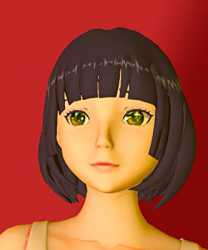>>2143860To put it in to perspective, elementary school students in Japan usually only learn about ~10 kanji a week, but they have the benefit of simply attaching what they heard into reading and writing (and obviously, more time dedicated to learning it), so it's a little less complicated. As an adult, you can definitely do more work. 20 is a good pace, but don't let yourself get burned out. I did 20 cards a day on Anki and I realized where brute memorization is only going to take you so far.
>>2143989Breaking down radicals and making your own story from the kanji to help remember them make up the bulk of RTK. It's a very good primer to get you started and is extremely helpful, but it won't really do anything for you beyond that. I highly recommend using something like Kanji Koohii in lieu of it since it provides a very robust dictionary and it's more or less partnered with RTK in a digital format and comes with SRS, etc, it's a better package deal. The most useful thing to know when learning kanji is that they are made of fixed parts (radicals) put together, and oftentimes, they'll have commonalities with other concepts. For instance, 月 being the 偏 (left radical) will always presuppose some sort of bodily organ like intestine in 腸 or chest in 胸 or arm in 腕, and so forth. Other times, it has a strong phonetic component to it like it would in Chinese. Other times, you'll have practically useless radicals like ⿕ whose only purpose is either being a flute by itself or combining with 金 to make... a lock kanji 鑰 which is already unused in favor of 鍵. The reason why Japanese is so complex is because it's essentially a whole 1000+ years of character acquisition from Chinese combined with homemade characters and some usages fall out of use while others stick around. Linguistically, however, Japanese is honestly not that hard to speak and listen to, because of how many shared sounds, meanings, etc. there are that tie a lot of concepts together into a catch-all, like 付く for example. Kanji, however, can (and will) often differentiate the same basal meaning that's spoken and understood into many different writings so as to give greater context to something that is being said that might not have clear context to someone that's reading or to give a more nuanced image. It's a close approximation of purple prose in English, if you want to use it as a comparison point.
Example: 見る. Simply puts, it means "to see / look / etc." However, you might run across 視る (to stare) or 観る (to take in / focus on something more thoroughly with your eyes - it's more active than 見る) or 診る (to medically examine) or 看る (to look after, take care of). Yet, all of those are pronounced and used in the exact same way. [みる]
The most important thing in learning any language is to first and foremost, have fun with it. If you aren't having fun, you're doing something wrong and you're not applying what you're learning in a way that's most conductive to you.

